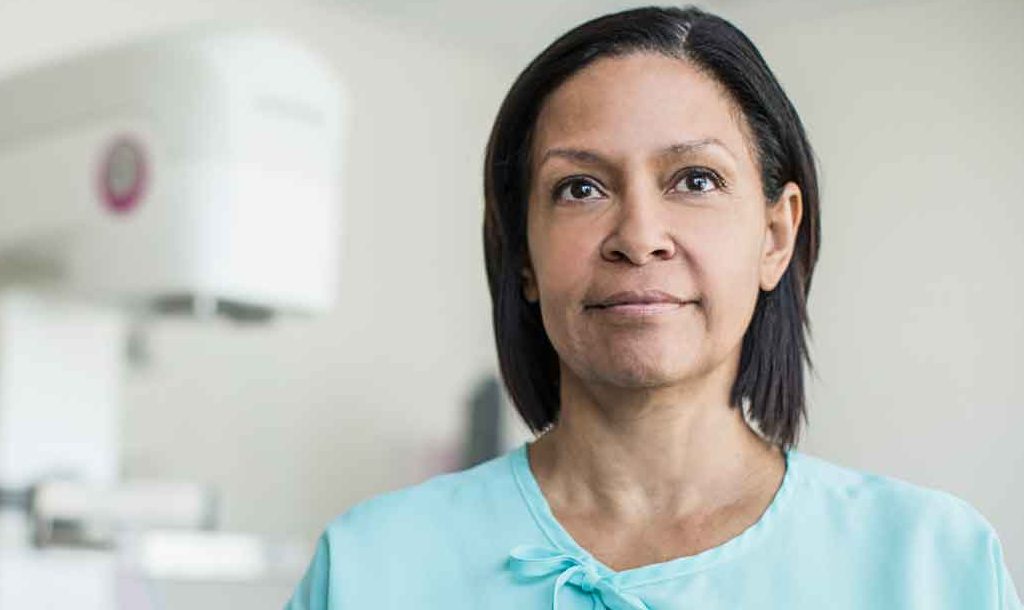Personalized Medicine for Breast Cancer

How your genes can help identify your risk of breast cancer and fine-tune your diagnosis and treatment. Here’s what you should know.
Cancer is, to some extent, a numbers game. Numbers represent your odds of surviving and of the cancer returning once you’ve been treated. Over recent decades, the numbers for breast cancer have moved in the right direction.
Death rates have dropped by 40 percent since 1992, after peaking in the late 1980s. Today, a woman’s chance of surviving a breast cancer diagnosis for five years is 91 percent. Doctors can now detect cancer more accurately and fine-tune treatment more closely for each patient.
The idea of using genetic information, sometimes called personalized or precision medicine, is hardly new. Gene tests to identify women at high risk for breast cancer have been in use for more than 20 years.
YOU MIGHT ALSO LIKE: What Is Personalized Medicine?
Breast cancer susceptibility genes
Since the 1990s, doctors have tested for mutations to two genes — BRCA1 and BRCA2. Those mutations compromise the body’s ability to repair damaged DNA, thus fostering tumor formation. Having one or more of those genes increases your risk of breast cancer by sevenfold or more.
Learning that you have one of the genes can help simplify very difficult treatment decisions.
“If we have an early-stage cancer with the BRCA1 or BRCA2 genes, we counsel patients to consider preventive mastectomy and ovary removal,” says Carey Anders, MD, an oncologist at the Duke Cancer Center Breast Clinic in Durham, North Carolina. “It also helps patients understand that, if they have daughters or sisters, they should consider genetic screening.”
Many other breast cancer susceptibility genes, including ATM, CHEK2, PALB2, and CDH1, are under investigation.
Biomarkers
Biomarkers — indicators of molecular processes related to disease — play a pivotal role in breast cancer management.
“Breast cancer is not one disease. It’s multiple diseases,” Anders says.
One way doctors have delineated between individual diseases is to detect whether a breast cancer has receptors that enable it to respond to the hormones estrogen or progesterone.
Estrogen and progesterone receptors are proteins on the surface of cells that can attach to either of those hormones. Estrogen receptor-positive cancers have estrogen receptors on their surface and grow in response to estrogen. Progesterone receptor-positive tumors have progesterone receptors and grow when exposed to progesterone.
Collectively, hormone receptor-positive (HR+) tumors account for up to 75 percent of breast cancers.
Another 20 percent of breast cancers stem from a gene mutation that leads to the overproduction of a protein called HER2, which promotes tumor growth. Cancers that don’t fall into either category because they lack estrogen and progesterone receptors, as well as HER2, are called triple-negative.
Each of the tumor categories behaves in a different way, responding in a unique way to treatment. Knowing which tumor markers a woman has can help her doctor predict which treatment will have the best benefit or risk profile.
For example, instead of using a one-size-fits all treatment like radiation or chemotherapy on HER2-positive breast cancers, doctors use targeted drugs like trastuzumab (Herceptin) and pertuzumab (Perjeta), which have been shown to work more effectively, with fewer side effects on this very aggressive tumor type.
“With the addition of Herceptin, the risk of HER2-positive cancer recurring is dramatically lower,” Anders says.
Other therapies target the molecular processes inside a cell that help tumors take root and spread. Lapatanib (Tykerb) blocks enzymes that help cancer cells grow. It’s approved for women with HER2-positive breast cancers. PARP inhibitors repair damaged DNA and could be promising targets for BRCA cancers, which stem from an inability to fix this damage.
The latest treatment for hormone receptor-positive (HR+) metastatic breast cancer is a group of three oral drugs, the cyclin-dependent kinase (CDK) inhibitors palbociclib (Ibrance), ribociclib (Kisqali), and abemaciclib (Verzenio).
In a review of eight clinical trials, for example, researchers from a cancer center at the University of Toronto concluded that they were similarly effective and tolerated (patients were most likely to drop abemaciclib because of diarrhea).
Other researchers, from the University of Munich, had the same conclusion, noting that side effects are manageable and that the drugs slowed any deterioration in quality of life and helped control pain.
Gene expression profiling
In women with certain hormone receptor-positive cancers, doctors can take personalization one step further with gene expression profiling. Tests like Oncotype DX and PAM50 (Prisogna) look for changes to genes that can predict how the cancer is likely to behave and whether a particular treatment will work on it.
Gene expression profiling is still relatively new. Some doctors are starting to offer the technology, but others defer patients to clinical trials where gene profiling is being studied.
Next-generation sequencing
Next-generation sequencing is the brave new world in personalized medicine for breast cancer, according to Anders. “This is where we’re starting to see differences in the molecular makeup of breast tumors.”
Harnessing the power of genomic exploration that began with the Human Genome Project, next-generation sequencing techniques quickly and accurately scan huge volumes of genetic material to identify specific mutations and biomarkers that can guide treatment.
“Many clinical trials are in progress, and I’m hopeful in the next several years, as the results become known, we’ll be able to decide on treatment algorithms beyond ER, PR, and HER2,” she says. “I think the advent of next-generation sequencing will really help direct our patients to make more informed decisions.”
If you’ve been diagnosed with breast cancer and are interested in learning more about personalized medicine, Anders suggests looking into a research study.
“I encourage patients to learn more about clinical trials that are available to them based on their tumor characteristics,” she says. You can ask your doctor to recommend a study or visit clinicaltrials.gov.
Updated:
June 15, 2023
Reviewed By:
Christopher Nystuen, MD, MBA and Janet O'Dell, RN